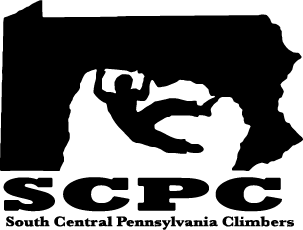Climbing Towards JEDI
Social justice principles ensure that each of our neighbors and fellow community members are treated with respect, dignity, and have equitable access to social, economic, environmental and political opportunities. The outdoor recreation and conservation industries have a huge role to play in advocating for and advancing these principles in order to foster a more inclusive environment for Black, Indigenous, People of Color (BIPOC) communities, as well as those from other marginalized groups. As the Access Fund puts it, climbing communities are not immune to concerns around social justice. What do we, as climbers, believe in and stand for as we grapple with dismantling both implicit and explicit exclusionary practices both indoors and outdoors?
Though there is no one solution for these questions, the best place to start is to educate each other on fundamental JEDI principles.
Justice: Working to dismantle systems of oppression and barriers to resources and opportunities in our community so that all people, especially those who have been historically underserved, can live a full and dignified life.
Equity: Allocating resources to ensure that everyone can get what they need in order to improve the quality of their situation. It specifically recognizes that advantages and barriers exist. In the photo below, the fence is the barrier and the boxes are the resources. Note that equity is not the same as equality.
Diversity: All aspects of human difference, including social, cultural, racial, gender, geographic, age-based, and other identities.
Inclusion: Fostering a sense of belonging by centering, valuing, and amplifying the voices and perspectives of all people.
JEDI principles apply to more than just human resources and workplace culture. The JEDI philosophy, and those who are working to implement these principles, are doing so both at the grassroots and institutional levels, with the mission to create a more equitable and just society. Furthermore, JEDI work is not only about community building, but also includes confronting our own worldviews so we can evaluate our own personal prejudices and biases in order for us individuals to vulnerably engage in this work. JEDI initiatives in the climbing community might look like creating bilingual signage and marketing content, offering day passes or gym memberships on a sliding scale for those who have lower income, acknowledging native land we climb, or even hosting an affinity group climbing session for people to engage in.
Social networks at the gym give us a sense of belonging, and along with that is the personal gratification of growing as a climber. Representation matters, and it is another key component of JEDI principles. It is the idea that affinity groups are appropriately reflected in participation and have a seat at the table. “According to the US census, around 40% of Americans—with the numbers rapidly growing—are nonwhite or hispanic. Yet climbing, skiing, and their peer activities often don’t reflect this”, notes Taimur Ahmad, Access Fund’s JEDI Fellow. Black, Indigenous, and People of Color have always been connected to the outdoors throughout history and are as much a part of these spaces as any other group. As discussed in the Enormocast 236 podcast episode with Malik Martin and Conrad Anker, sometimes we are so caught up in what we do as individual climbers that we build up walls and a persona rather than collaborate as one communal group (boulders vs. sport climbers vs. trad climbers). If we want to become more vibrant and effective stewards of the outdoor spaces we love and climb on, we need to exude inclusivity wholeheartedly.
So what can we do as a climbing community? We can start by learning and implementing the JEDI principles and community practices we’ve discussed here, without putting the work on marginalized groups to do so for us. We can also acknowledge that intersectional, socioeconomic barriers exist for people to access this sport and frame our racial equity approach around these concepts.
It should also be noted that each climbing community and each Local Climbing Organization (LCO) are working through issues that are relevant to their regions and this work towards community building looks different for each of us.
Interested in engaging in SCPC’s JEDI work? Contact Jocelyn Hillman or Cait Handlin to learn more at cait@scpclimbers.org.
Article Written By: Cait Handlin

